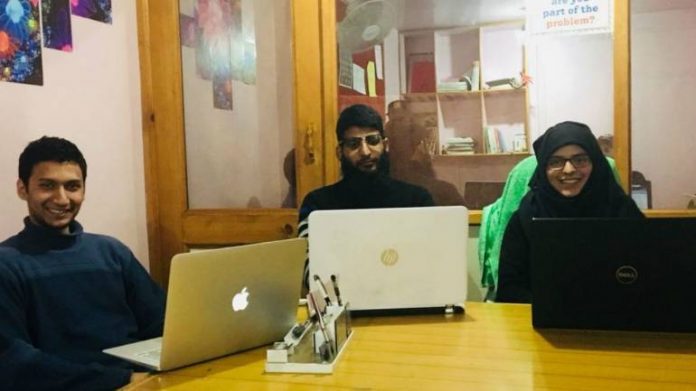Certain moments have the power to drastically change the course of one’s life, and for Manjiri Bakre, that moment was the loss of a dear friend to breast cancer.
Although she was diagnosed at an early stage, the tumours spread from her breast to her liver, lungs and ovaries and she died in two years.
Bakre has a PHD in cell biology from IISC Bengaluru, and spent years on the research of how different types of cells behave. She was therefore, well aware that breast cancers cells tend to have fewer instances of aggressively spreading throughout the body in the form of tumours.
The unexpected death of her friend made her resolve to find a way of knowing whether one has a high risk of cancer recurrence.
She decided to move on from her research position to set up OncoStem — a startup that conducts tests for breast cancer patients to make an informed decision on their treatment options.
“Our tool is added to the existing methods doctors use, to understand the risks of cancer recurrence in patients better, and plan a more informed school of action,” she says.
While scientists and medical researchers continue to work tirelessly to find a cure, much progress has been made since the 1900s, when cancer was completely the domain of surgeons extracting tumours.
Cancer tumours are formed by the accumulation of cancerous cells in the body, these are cells which have lost their ability to stop dividing due to a DNA mutation. During the second world war, chemotherapy meant tumours could be shrunken. “But one needs to give weigh to the side-effects before taking up such treatment,” she says.
Bakre explains that chemotherapy is non-discriminative, which means it will kill both cancer and non-cancer cells. “Which is why under chemotherapy, the lining of the stomach cells get attacked, leading the patient to experience vomitting and diarrhoea. The division of the hair follicles is also interrupted, which will lead to baldness,” she says. “Your ability to fight any infection also diminishes, bringing down the quality of life. It is a burden on the liver, as it needs to metabolize on all these toxins.”
Many of them are toxic to the heart, so it may be possible for patients to suffer a heart attack from taking up too much chemotherapy.
According to Bakre, around 70 percent of early stage breast cancer patients (stage 1 and stage 2) have a low risk of cancer recurrence and can avoid chemotherapy. Carrying out chemotherapy could lead to overtreatment of their condition, leading to possible adverse effects without any substantial benefit.
Bakre attests that the test developed by OncoStem, named CanAssist Breast, could also lead to reduced expenses, as the cost of chemotherapy can be averaged from Rs 1.5 to Rs 2 lakh, depending on how the well the patient responds to the treatment.
The test, developed by Dr Bakre and her team of scientists, costs up to Rs 60,000. Before CanAssist Breast, similar tests existed only in western countries and typically cost around Rs 3 lakh.
“In many states, a majority of these treatment costs for patients below the poverty line are borne by the government schemes,” she says, which suggests savings under these health schemes.
Currently, OncoStem’s test measures the risk of cancer recurrence and the survival rates of hormone-responsive breast cancer patients, which are close to 75-78 percent of all breast cancer cases in India. These patients should have also undergone one round of surgery before undergoing the test. The test involves collecting a tumour sample that is recovered during the surgery. It is then given a quality check, and analysed by an algorithm.
Bakre says this algorithm was developed by artificial-intelligence-backed tests and machine-learning based models. It studied the patterns and the five-year history of 300 patients with the same disease.
Since the inception of the venture in 2016, Oncostem has reached out to 300 patients and hopes to reach out to 700 more in the coming year.
Others are also banking on its larger outreach in the future. OncoStem has so far raised close to $9 million in venture capital funding from Sequoia Capital and Artiman Ventures.
The Bangalore-based company looks to carry out more research to allow their product to assess the risk of cancer recurrence for oral, colon and ovarian cancer — the most rampant types in India.
To increase their outreach, they currently rely on collaborations with diagnostic chains such as SRM diagnostics and Onquest laboratories.
In the long term, Bakre hopes that the test would also help in the development of better-targeted drugs — a form of treatment that began in the 1990s. Unlike chemotherapy, these are drugs that kill only cancer cells. Bakre offers an analogy.
“Chemotherapy is like an atom bomb that kills every living thing in its path, whether that is cancerous or normal. But targeted drugs are like targeted heat-seeking missiles, they will kill only the breast cancer cells ,” she says.
“Targeted drugs are like the need of the hour, because you only want to kill the patient’s tumour. If you have some drugs that target the breast cancer cells only, that would be ideal. Because then you could completely eliminate chemotherapy.”
So as long as cancer continues to be the emperor of maladies, the crusade to find a cure will continue to be fought. Till then, organisations like Oncostem hope to give back the quality of life that generations of patients have been unjustly stripped of.




